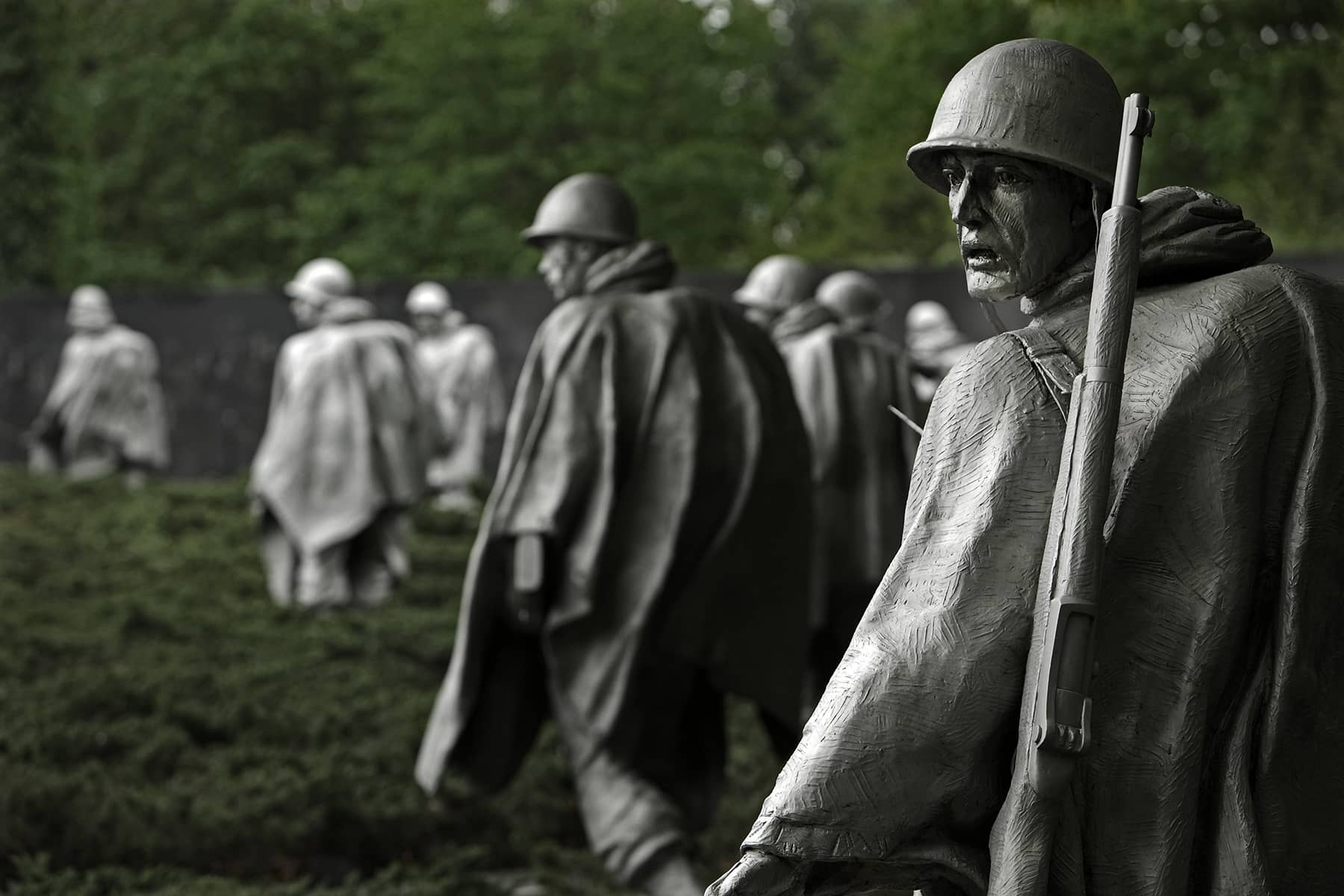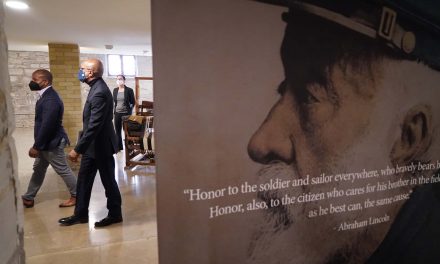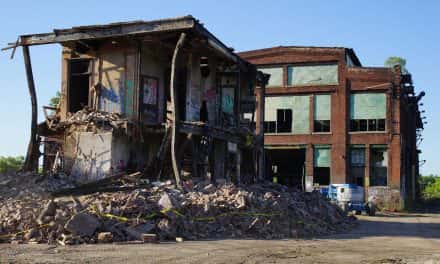
While the United States has remained committed to the security of South Korea for decades, most Americans only know that the battles fought there were part of a “Forgotten War.” In recent years, efforts in places like Milwaukee have been made to honor Korean War veterans and ensure that their service and sacrifices are remembered.
The Korean War began on June 25, 1950, and ended with an Armistice on July 27, 1953. That agreement was merely a cessation of hostilities, and technically a state of war still exists between North and South Korea. Despite the significant impact and the high cost in terms of human lives and geopolitical consequences, it is hard to believe that such a terrible conflict is best known for being “forgotten.”
But the nomenclature stems from several factors that contributed to its relative obscurity in the collective memory of both the United States and the global community. The Korean War did not receive the same level of attention or commemoration as other major conflicts like World War II or the Vietnam War.
The reasons for this neglect involved many social and media-driven dynamics. One of the primary reasons the Korean War is considered “forgotten” lies in its historical context. The war erupted just five years after the end of World War II, a conflict that had dramatically reshaped global politics and economies.
The Second World War left a profound and lasting impact on the world, and the subsequent Cold War between the United States and the Soviet Union quickly took center stage in international relations. The Korean War, in many ways, was perceived as a subsidiary conflict within the broader Cold War framework.
It was a proxy war, with the United States and its allies supporting South Korea against the North Korean forces, who were backed by China and the Soviet Union. The positioning as a subsidiary front in the Cold War led to less emphasis and coverage compared to more direct confrontations between the superpowers.
Media coverage during the Korean War also played a significant role in its relative obscurity. Unlike World War II, which saw extensive and continuous coverage that kept the public engaged and informed, the Korean War did not receive the same level of media attention. The war was often described as a “police action” rather than a full-scale war, which may have contributed to a perception that it was less worthy of attention.
Additionally, the advent of television had not yet fully transformed news dissemination, meaning that the war did not have the constant presence in people’s living rooms that the Vietnam War later did. The lack of dramatic and widely publicized battles or clear victories further diminished its profile.
The social and political dynamics within the United States during and after the Korean War also contributed to its “forgotten” status. The war ended in a stalemate, with a ceasefire rather than a clear victory or defeat. And for all the fighting over three years, the end result brought no adjustments to political control or territory.
In 1950, the two countries were divided at the 38th Parallel. In 1953, after opposing forces had pushed far south and then far north, with Seoul changing hands four times, the countries remained divided as they had been since 1945 at the 38th Parallel.
In hindsight, the United States and its allies might have secured a decisive victory in the Korean War if they had exercised restraint after capturing Pyongyang in October 1950. At that moment, the North Korean forces were on the brink of collapse, and the war seemed poised for a swift conclusion. The opportunity was ripe for a negotiated peace that could have ended the conflict on terms favorable to the U.S. and its United Nations partners.
But the decision to press forward toward the Yalu River, bordering China, proved to be a fateful miscalculation. The aggressive advance was perceived by Beijing as an existential threat, prompting China to intervene with overwhelming force. The entrance of hundreds of thousands of Chinese troops into the war transformed what could have been a quick victory into a grinding and costly stalemate.
Had the U.S. halted its advance after the capture of Pyongyang, it could have negotiated a settlement that might have led to a unified Korea under South Korean leadership or, at the very least, a peace agreement more advantageous to the South and its allies. The U.S. could have consolidated its gains and effectively contained North Korean Communism, preventing the war from dragging on and stabilizing the region without further escalation.
By refraining from advancing to the Yalu River, the U.S. might have also avoided provoking China into the conflict. That would have spared the U.N. forces the prolonged and bloody stalemate that characterized the latter years of the war.
That outcome contrasted sharply with the decisive victory of World War II and the eventual, albeit contentious, conclusion of the Vietnam War. The Korean War’s ambiguous end led to a lack of closure and, consequently, a muted reception in the public consciousness.
The immediate post-Korean War period also saw the United States embroiled in domestic issues, including the Red Scare and McCarthyism. The fear of Communism and the resulting political purges dominated headlines and public discourse, overshadowing the events in Korea.
Veterans returning from Korea did not receive the same level of recognition or celebration as their World War II counterparts, contributing to a sense of neglect and obscurity surrounding their sacrifices and experiences.
One notable effort in Milwaukee, to correct for the history of indifference, was the establishment of the Milwaukee County War Memorial Center. Serving as a focal point for remembering all veterans, it features an Honor Roll that lists the names of Milwaukee County residents who died in service, including those who perished during the Korean War.
In addition to the War Memorial Center, Milwaukee has also hosted various events and ceremonies specifically dedicated to Korean War veterans, acknowledging their sacrifices and offering overdue tributes. Such events have coincided with significant anniversaries of the war, such as the 60th and 70th anniversaries of the Armistice.
During the ceremonies, Milwaukee veterans are recognized, and their stories from the Korean War are shared with the public. The events have helped to promote more awareness, understanding, and appreciation of their service.
The involvement of local veteran organizations, along with the participation of the Korean-American community, has helped to preserve the legacy of the Korean War. The role of the news media in raising public awareness about the Korean War has also evolved in recent years, but mostly in response to the passing of elderly veterans who are all now in their 90s.
Educational initiatives have also played a crucial role in ensuring that the Korean War is not forgotten. Schools in Milwaukee have incorporated lessons about the Korean War into their history curricula, teaching students in modern times about the long-ago conflict and its significance.
Guest speakers, including veterans and historians, have been invited to share their knowledge and experiences, providing students with firsthand accounts of the war. The educational initiatives help to preserve the memory of the Korean War and pass on its lessons to future generations.
While no amount of effort will ever erase the description of the “Forgotten War” from history books, Milwaukee is an example of a place where various communities have tried to rectify the Korean War’s historical neglect.
MI Staff (Korea)
Lее Mаtz
Andrey Yushkov, Bumble Dee, Carrie A Hanrahan, Christian Thiel, Cvan Dyke, Donald R. Swartz, Enrico Della Pietra, Euro Banks, Gary Yim, Giuseppe Crimeni, Grindstone Media Group, James Kirkikis, John Eric Jackson, Kire Marinceski, Lapai Ir Krapai, Melissa F84, Orhan Cam, Pack-Shot, Rikkie Bel, Rozenski P., Steve Heap, Mirko Kuzmanovic, and Vacclav (via Shutterstock)
- Exploring Korea: Stories from Milwaukee to the DMZ and across a divided peninsula
- A pawn of history: How the Great Power struggle to control Korea set the stage for its civil war
- Names for Korea: The evolution of English words used for its identity from Gojoseon to Daehan Minguk
- SeonJoo So Oh: Living her dream of creating a "folded paper" bridge between Milwaukee and Korean culture
- A Cultural Bridge: Why Milwaukee needs to invest in a Museum that celebrates Korean art and history
- Korean diplomat joins Milwaukee's Korean American community in celebration of 79th Liberation Day
- John T. Chisholm: Standing guard along the volatile Korean DMZ at the end of the Cold War
- Most Dangerous Game: The golf course where U.S. soldiers play surrounded by North Korean snipers
- Triumph and Tragedy: How the 1988 Seoul Olympics became a battleground for Cold War politics
- Dan Odya: The challenges of serving at the Korean Demilitarized Zone during the Vietnam War
- The Korean Demilitarized Zone: A border between peace and war that also cuts across hearts and history
- The Korean DMZ Conflict: A forgotten "Second Chapter" of America's "Forgotten War"
- Dick Cavalco: A life shaped by service but also silence for 65 years about the Korean War
- Overshadowed by conflict: Why the Korean War still struggles for recognition and remembrance
- Wisconsin's Korean War Memorial stands as a timeless tribute to a generation of "forgotten" veterans
- Glenn Dohrmann: The extraordinary journey from an orphaned farm boy to a highly decorated hero
- The fight for Hill 266: Glenn Dohrmann recalls one of the Korean War's most fierce battles
- Frozen in time: Rare photos from a side of the Korean War that most families in Milwaukee never saw
- Jessica Boling: The emotional journey from an American adoption to reclaiming her Korean identity
- A deportation story: When South Korea was forced to confront its adoption industry's history of abuse
- South Korea faces severe population decline amid growing burdens on marriage and parenthood
- Emma Daisy Gertel: Why finding comfort with the "in-between space" as a Korean adoptee is a superpower
- The Soul of Seoul: A photographic look at the dynamic streets and urban layers of a megacity
- The Creation of Hangul: A linguistic masterpiece designed by King Sejong to increase Korean literacy
- Rick Wood: Veteran Milwaukee photojournalist reflects on his rare trip to reclusive North Korea
- Dynastic Rule: Personality cult of Kim Jong Un expands as North Koreans wear his pins to show total loyalty
- South Korea formalizes nuclear deterrent strategy with U.S. as North Korea aims to boost atomic arsenal
- Tea with Jin: A rare conversation with a North Korean defector living a happier life in Seoul
- Journalism and Statecraft: Why it is complicated for foreign press to interview a North Korean defector
- Inside North Korea’s Isolation: A decade of images show rare views of life around Pyongyang
- Karyn Althoff Roelke: How Honor Flights remind Korean War veterans that they are not forgotten
- Letters from North Korea: How Milwaukee County Historical Society preserves stories from war veterans
- A Cold War Secret: Graves discovered of Russian pilots who flew MiG jets for North Korea during Korean War
- Heechang Kang: How a Korean American pastor balances tradition and integration at church
- Faith and Heritage: A Pew Research Center's perspective on Korean American Christians in Milwaukee
- Landmark legal verdict by South Korea's top court opens the door to some rights for same-sex couples
- Kenny Yoo: How the adversities of dyslexia and the war in Afghanistan fueled his success as a photojournalist
- Walking between two worlds: The complex dynamics of code-switching among Korean Americans
- A look back at Kamala Harris in South Korea as U.S. looks ahead to more provocations by North Korea
- Jason S. Yi: Feeling at peace with the duality of being both an American and a Korean in Milwaukee
- The Zainichi experience: Second season of “Pachinko” examines the hardships of ethnic Koreans in Japan
- Shadows of History: South Korea's lingering struggle for justice over "Comfort Women"
- Christopher Michael Doll: An unexpected life in South Korea and its cross-cultural intersections
- Korea in 1895: How UW-Milwaukee's AGSL protects the historic treasures of Kim Jeong-ho and George C. Foulk
- "Ink. Brush. Paper." Exhibit: Korean Sumukhwa art highlights women’s empowerment in Milwaukee
- Christopher Wing: The cultural bonds between Milwaukee and Changwon built by brewing beer
- Halloween Crowd Crush: A solemn remembrance of the Itaewon tragedy after two years of mourning
- Forgotten Victims: How panic and paranoia led to a massacre of refugees at the No Gun Ri Bridge
- Kyoung Ae Cho: How embracing Korean heritage and uniting cultures started with her own name
- Complexities of Identity: When being from North Korea does not mean being North Korean
- A fragile peace: Tensions simmer at DMZ as North Korean soldiers cross into the South multiple times
- Byung-Il Choi: A lifelong dedication to medicine began with the kindness of U.S. soldiers to a child of war
- Restoring Harmony: South Korea's long search to reclaim its identity from Japanese occupation
- Sado gold mine gains UNESCO status after Tokyo pledges to exhibit WWII trauma of Korean laborers
- The Heartbeat of K-Pop: How Tina Melk's passion for Korean music inspired a utopia for others to share
- K-pop Revolution: The Korean cultural phenomenon that captivated a growing audience in Milwaukee
- Artifacts from BTS and LE SSERAFIM featured at Grammy Museum exhibit put K-pop fashion in the spotlight
- Hyunjoo Han: The unconventional path from a Korean village to Milwaukee’s multicultural landscape
- The Battle of Restraint: How nuclear weapons almost redefined warfare on the Korean peninsula
- Rejection of peace: Why North Korea's increasing hostility to the South was inevitable
- WonWoo Chung: Navigating life, faith, and identity between cultures in Milwaukee and Seoul
- Korean Landmarks: A visual tour of heritage sites from the Silla and Joseon Dynasties
- South Korea’s Digital Nomad Visa offers a global gateway for Milwaukee’s young professionals
- Forgotten Gando: Why the autonomous Korean territory within China remains a footnote in history
- A game of maps: How China prepared to steal Korean history to prevent reunification
- From Taiwan to Korea: When Mao Zedong shifted China’s priority amid Soviet and American pressures
- Hoyoon Min: Putting his future on hold in Milwaukee to serve in his homeland's military
- A long journey home: Robert P. Raess laid to rest in Wisconsin after being MIA in Korean War for 70 years
- Existential threats: A cost of living in Seoul comes with being in range of North Korea's artillery
- Jinseon Kim: A Seoulite's creative adventure recording the city’s legacy and allure through art
- A subway journey: Exploring Euljiro in illustrations and by foot on Line 2 with artist Jinseon Kim
- Seoul Searching: Revisiting the first film to explore the experiences of Korean adoptees and diaspora
















































































